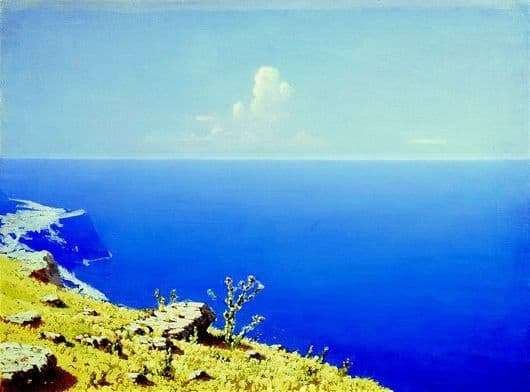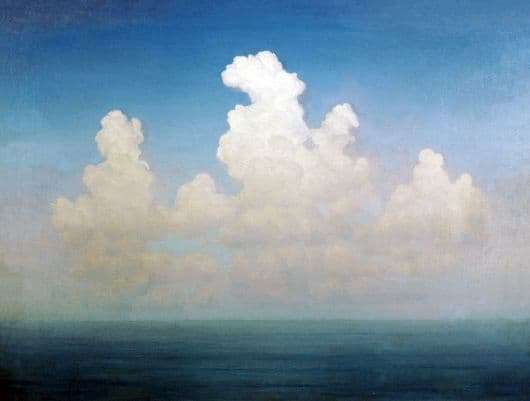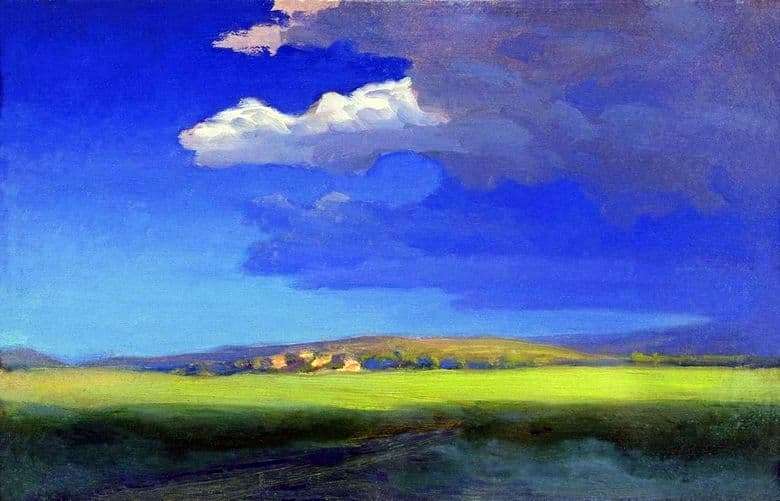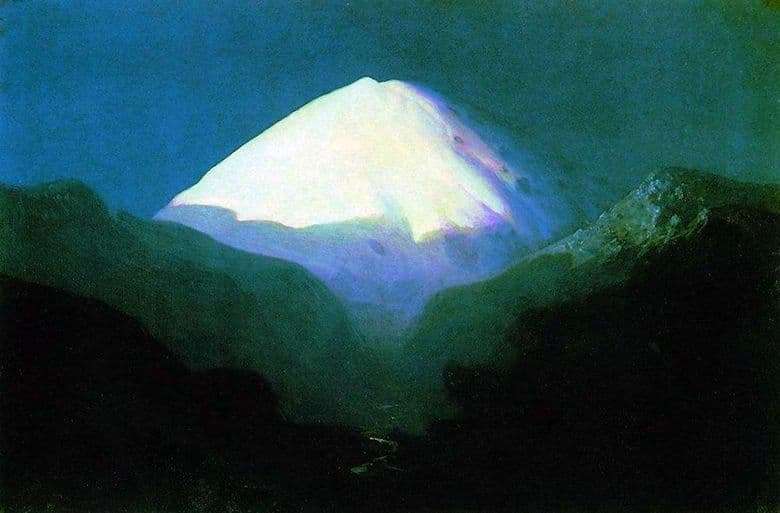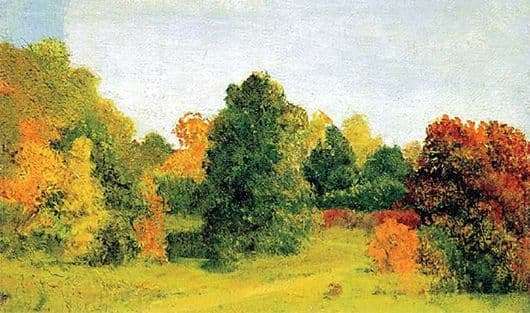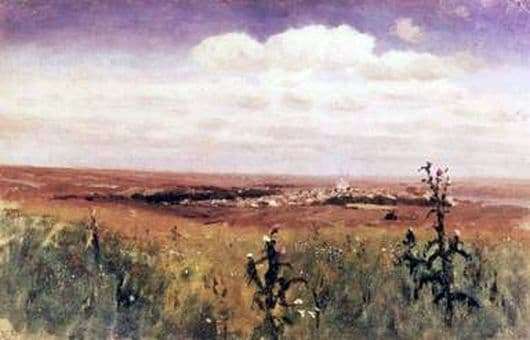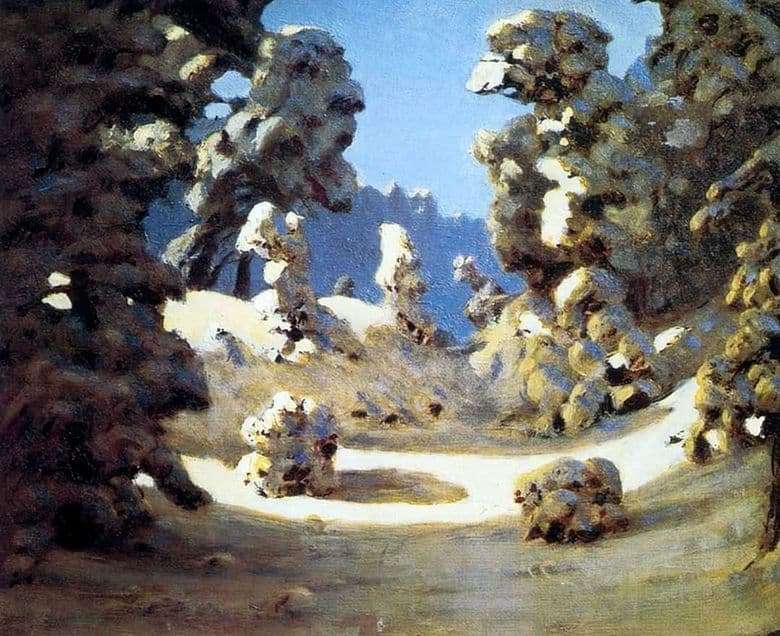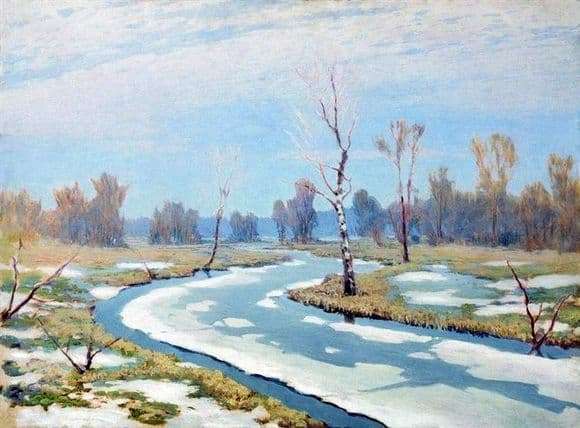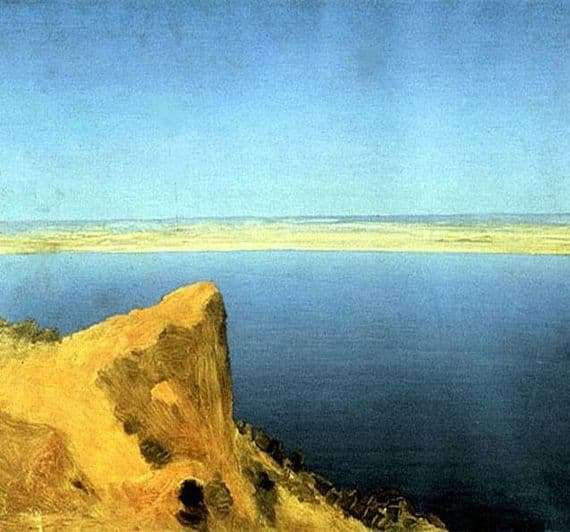
The painting of Arkhip Ivanovich Kuindzhi ” Volga ” is filled with silence and depth of feelings and represents the artist’s mental state. The author’s love for nature is expressed in this masterpiece. The artist’s brushes accurately and clearly depicted the beauty of the river and the whole landscape around the river.
The author uses mainly two bright colors of colors, blue and sand yellow. He conveyed all the colors in such a way that he himself involuntarily finds himself inside this masterpiece. In this picture Kuindzhi seeks to put his whole soul in order to show the whole world his sigh for nature.
In the picture you can clearly and clearly see the inner world of the artist, in which there were happiness and joy. The contrast of the colors of blue and yellow open up to us the depth of peace and quiet. The picture says that the author was happy life, he loved to live. A beautiful and clear sky expresses tranquility and endless distance, and a high hill above the river conveys the warmth of the senses enveloping Arkhip Ivanovich.
The picture makes you feel the majesty of the river, creates a feeling of peace, tranquility. The ability to use bright colors, and their combination allows us to see the depth of the river. Volga creates an amazing mood of inspiration, delight, faith in the unchanging beauty of nature. The eye of the artist notices all that is beautiful and opens it to our eye. We all know that the artist in the first place glorifies nature, he cannot imagine his life without it.
Looking at the picture, you see that the river is about to touch the sky. Volga carries freshness and moisture, which is so necessary on a hot summer day, it carries a sense of purity and satisfaction. Surprisingly, the work makes us see and hear us the summer symphony of the Russian river.
Description of the painting by Arkhip Ivanovich Kuindzhi “Volga”
